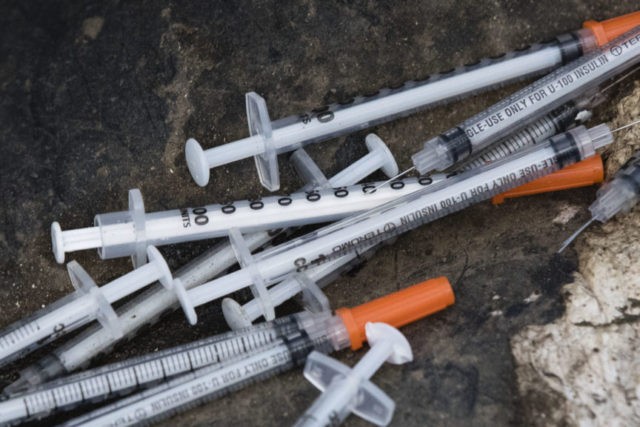The top lawmakers on a Senate panel, in a rare show of bipartisanship, urged the U.S. Department of Justice (DOJ) to launch an investigation into “credible allegations” of drug trafficking activities linked to the regime of Venezuelan dictator Nicolás Maduro that may be fueling the drug overdose epidemic in America.
In a January 24 letter addressed to Attorney General Jeff Sessions, Marco Rubio (R-FL), the chairman of the Senate Foreign Relations Subcommitee on Western Hemisphere and Transnational Crime, and Robert Menendez (D-NJ), the panel’s ranking member, accused the Maduro regime of “providing a fertile ground for drug cartels” in Venezuela, including the Revolutionary Armed Forces of Colombia (FARC), which is considered one of the top cocaine trafficking organizations in the region.
Referring to Venezuela, Sens. Rubio and Menendez wrote:
This lawless environment threatens the stability and security of the region, including the United States, by providing fertile ground for drug cartels and U.S.-designated foreign terrorist organizations, such as the FARC and ELN [National Liberation Army], to operate.
…
The Maduro regime has caused economic and political disaster in Venezuela that threatens to destabilize the Western Hemisphere. We request that the U.S. Department of Justice immediately pursue an investigation into the credible allegation of drug trafficking and other illicit activities by senior Venezuelan government officials in order to better understand the nexus between criminal actors and members of Maduro’s inner circle.
Echoing the Senators, the U.S. State Department reported last year that the socialist country of Venezuela continues to maintain a “permissive environment” that benefits known terrorist groups including Hezbollah, the FARC, and possibly even the Islamic State (ISIS/ISIL), all of whom operate in Latin America.
Authorities have accused Venezuelan officials of selling hundreds of passports to various individuals, including Hezbollah militants, potentially allowing them to “moving freely” inside the United States and Latin America using official Venezuelan documents.
“We are concerned about the growing connections between members of the Maduro regime and established narcotrafficking organizations” in Latin America, which include Hezbollah and the FARC, wrote the Senators.
The U.S. lawmakers cited several instances in which American authorities have indicted, imposed sanctions, and convicted Maduro regime officials—including some of his family members—for various offenses including anti-democratic actions, human rights violations, corruption, drug smuggling, money laundering, and working with foreign terrorist groups.
Early last year, the Council on Foreign Relations (CFR) acknowledged that the Maduro regime has been allowing drug traffickers, including the notorious Mexican Sinaloa and Zeta cartels, as well as potential terrorists and other unsavory individuals to freely operate inside the South American country unabated, without fear of reprisal.
Rep. Robert Pittenger (R-NC), the chairman of the Congressional Task Force on Terrorism and Unconventional Warfare, cautioned a few months later that Hezbollah and other Islamic terrorist groups are joining forces with “violent drug lords” in Latin America to raise money to fund their nefarious activities.
He noted that the drug cartel-jihadi nexus poses a “grave threat” to U.S. national security.
The FARC and Mexican drug cartels are known to work with jihadist groups, including Iran’s narco-terrorist proxy Hezbollah, which maintains a prominent presence in Latin America, and al-Qaeda in the Islamic Maghreb (AQIM).
Latin America is the top source of illicit drugs in the United States, including heroin and cocaine, which are fueling an unprecedented fatal overdose epidemic.
Former U.S. President Barack Obama’s administration reportedly “derailed” a DEA operation targeting Hezbollah’s multi-million-dollar drug trafficking activities in Latin America to secure approval of the controversial Iran nuclear deal.
Of the total 64,070 deadly drug overdoses in the United States last year, heroin (15,446) and cocaine (10,619) were responsible for about 40 percent.
More people were killed by heroin and cocaine in the United States alone than by terrorists (25,621) across the entire world last year.
The peace agreement between Colombia and the FARC has reportedly allowed the terrorist group to grow more cocaine, once again rendering the South American country the top producer of the illicit drug in the world.

COMMENTS
Please let us know if you're having issues with commenting.